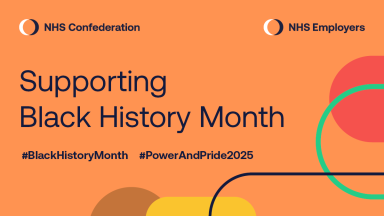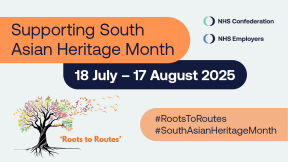BME Leadership Network
The BME Leadership Network (BLN) is a member-led network dedicated to establishing a truly diverse NHS leadership by strengthening the voice of black and minority ethnic communities.
We aim to bring about sustainable change, so the NHS always delivers high quality universal care to all communities, by supporting members to overcome strategic and operational barriers to delivering equality.
Our offer is aligned to our four strategic pillars of directed action, system influencing, celebration and legacy.
Watch our short video to learn more about the network's purpose and how it's supporting members.
Join us for our annual conference
We invite you to join us in Leeds on 28 April 2026 for our flagship conference, delivered in partnership with the BME Leadership Network, dedicated to tackling racial inequalities across health and care.
This event is for all NHS leaders with an interest in tackling racial inequality, including board level leaders, commissioners, non-executive directors, service design leads and workforce leaders.
Our member offer
Our activity programme responds to the needs of members and the prevailing policy context, delivering support in the form of:
- three in-person events each year including our Spring anti-racism conference, our network lunch at ConfedExpo and our Black History Month lecture
- bi-monthly bulletins, including our anti-racism bulletin that shares the latest developments, learning opportunities, good practice and event information
- evidence gathering to influence key decision makers, these findings are published in our reports such as Excellence through equality and Shattered Hopes.
Safe spaces to discuss shared experiences including our:
- virtual network member meetings
- BME Leadership Network of Network Leaders for chairs of NHS staff BME/BAME networks
- leadership development sessions exclusive to network members.






















